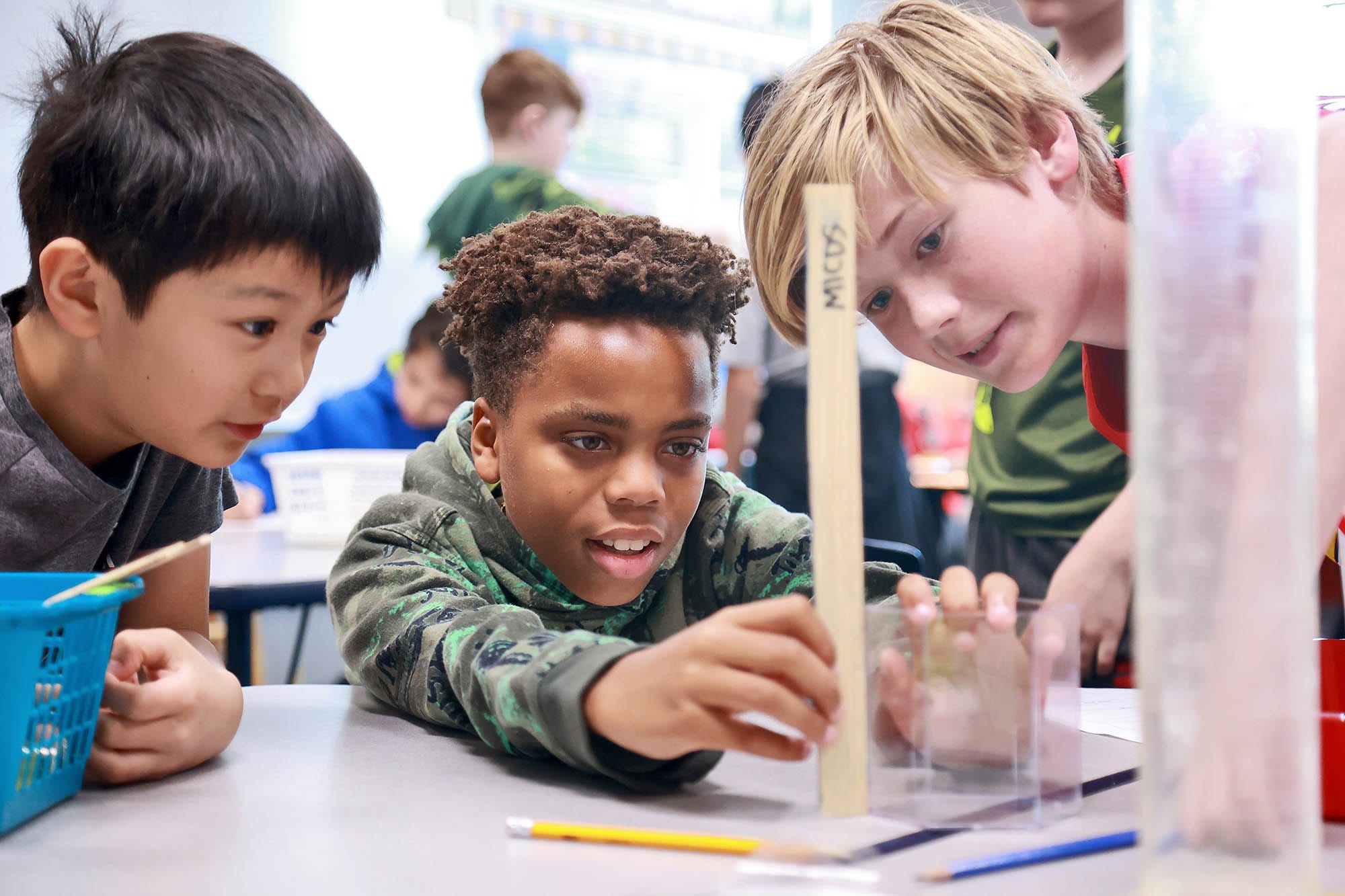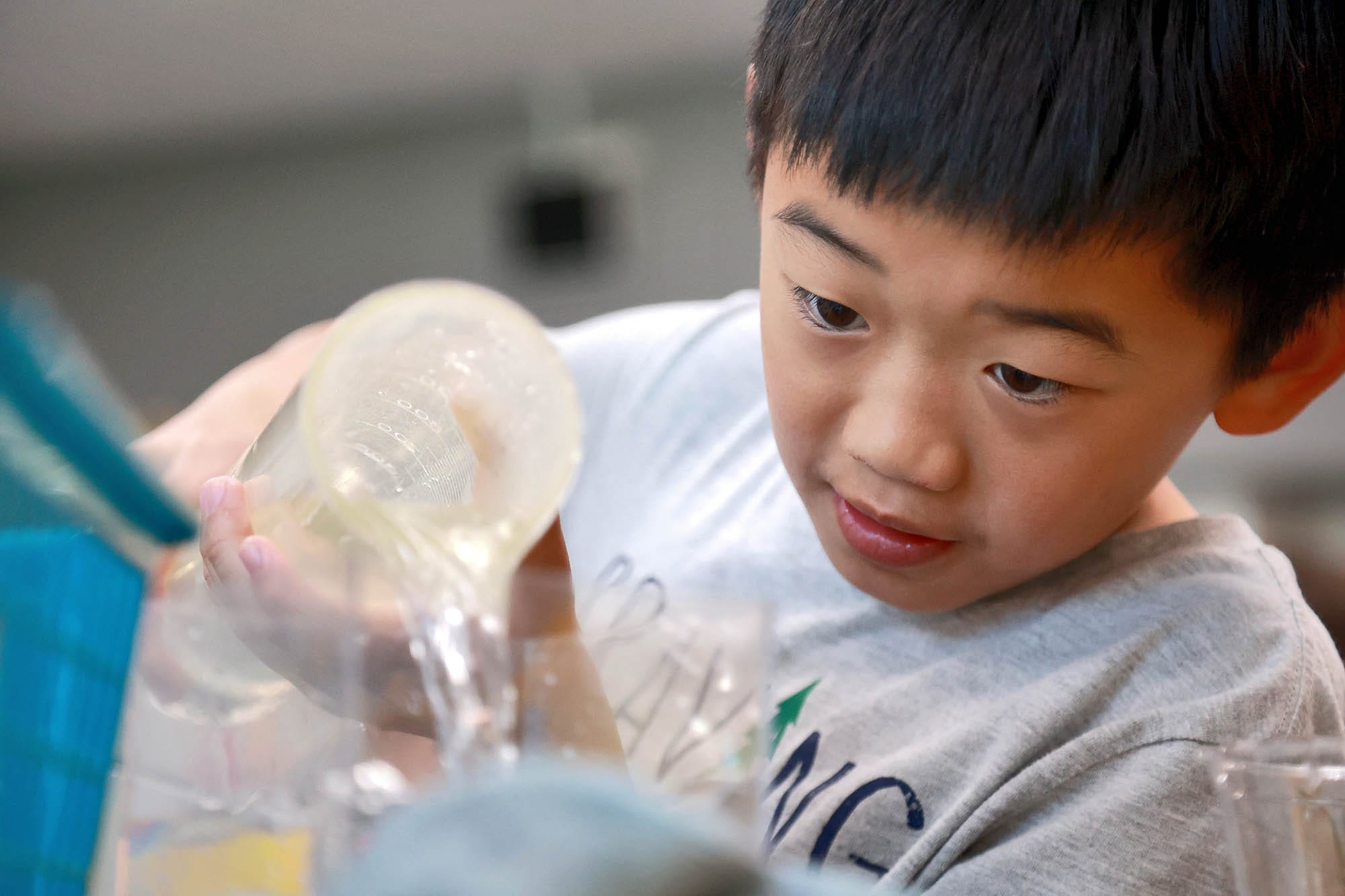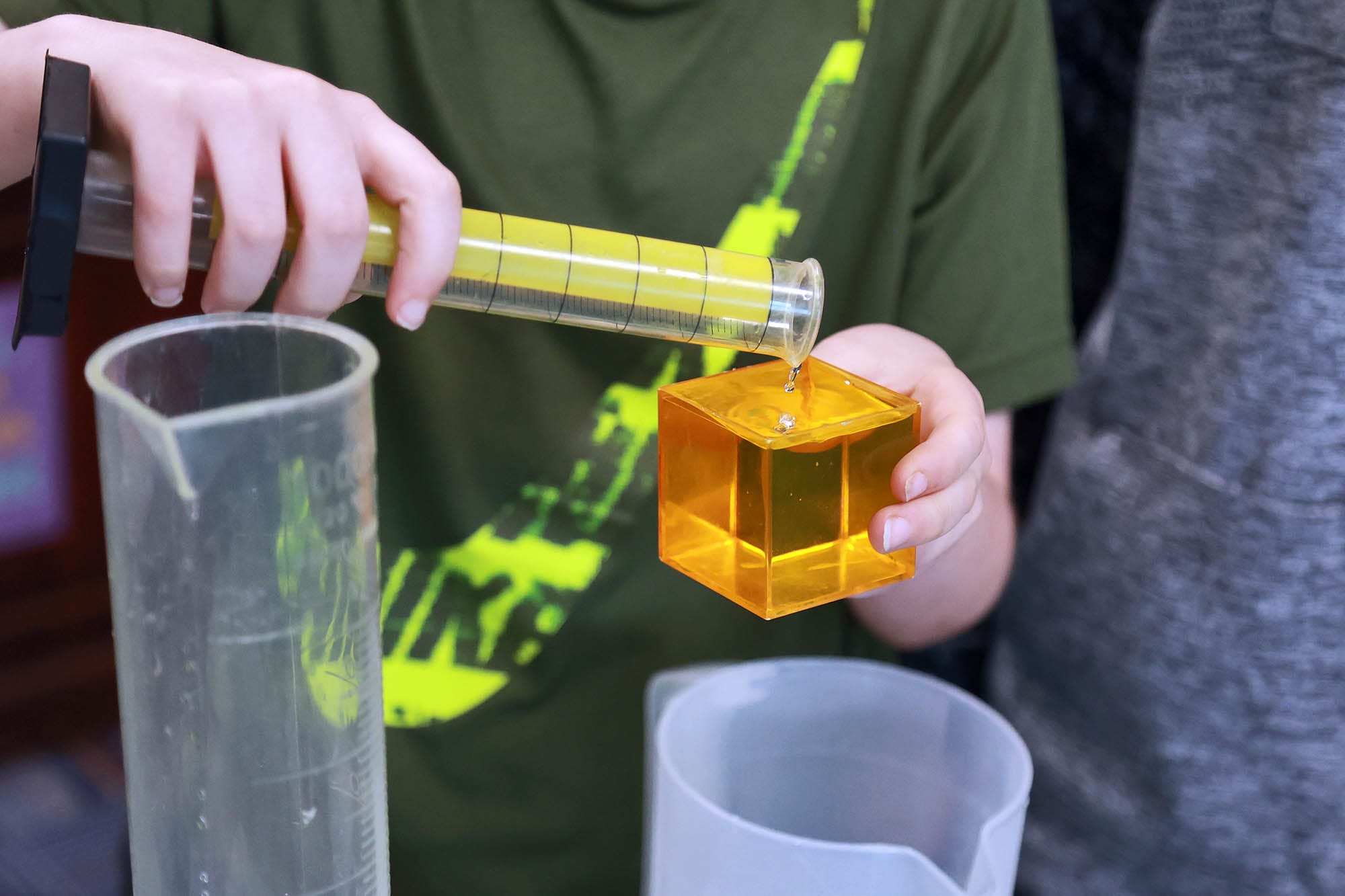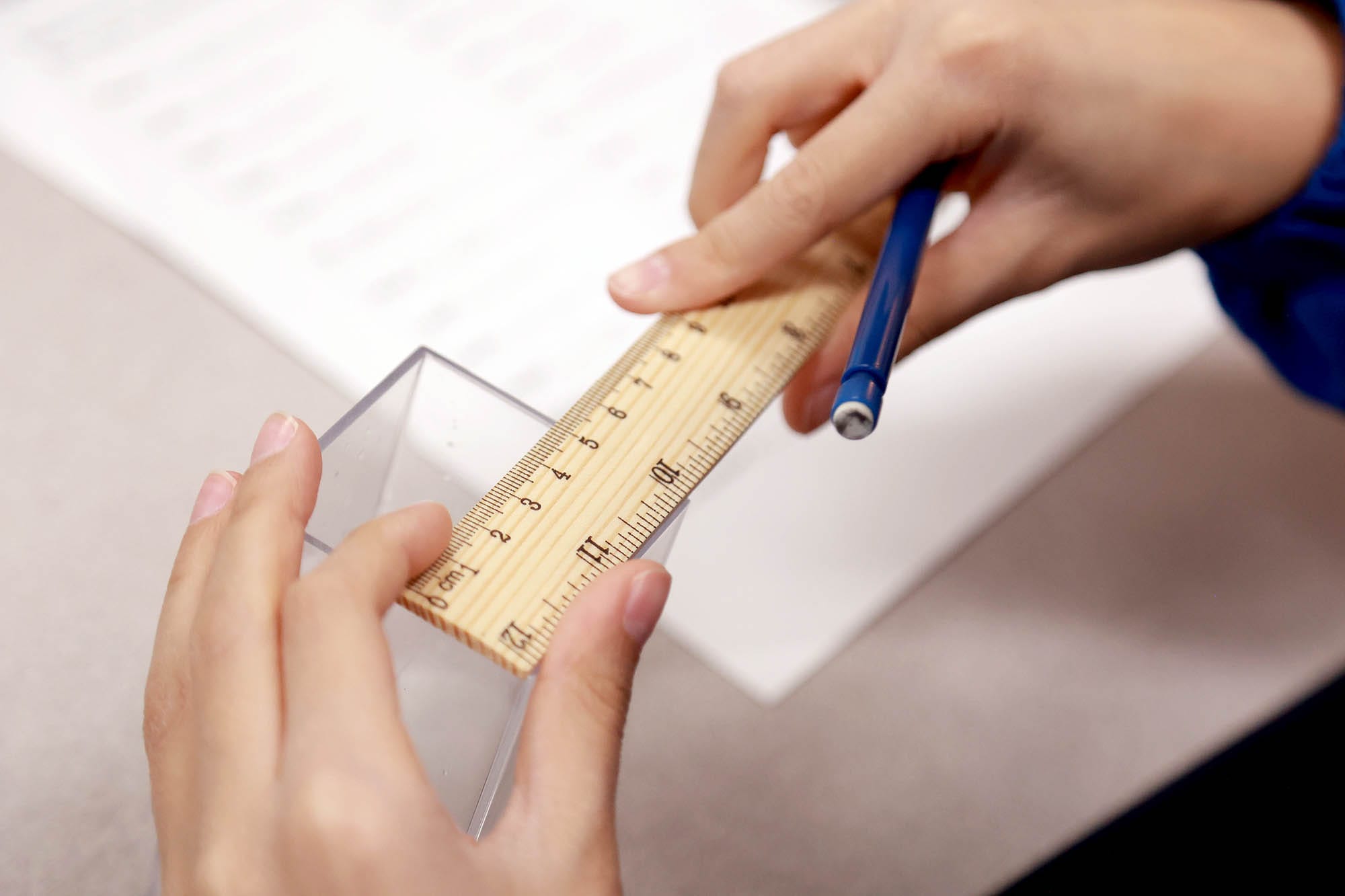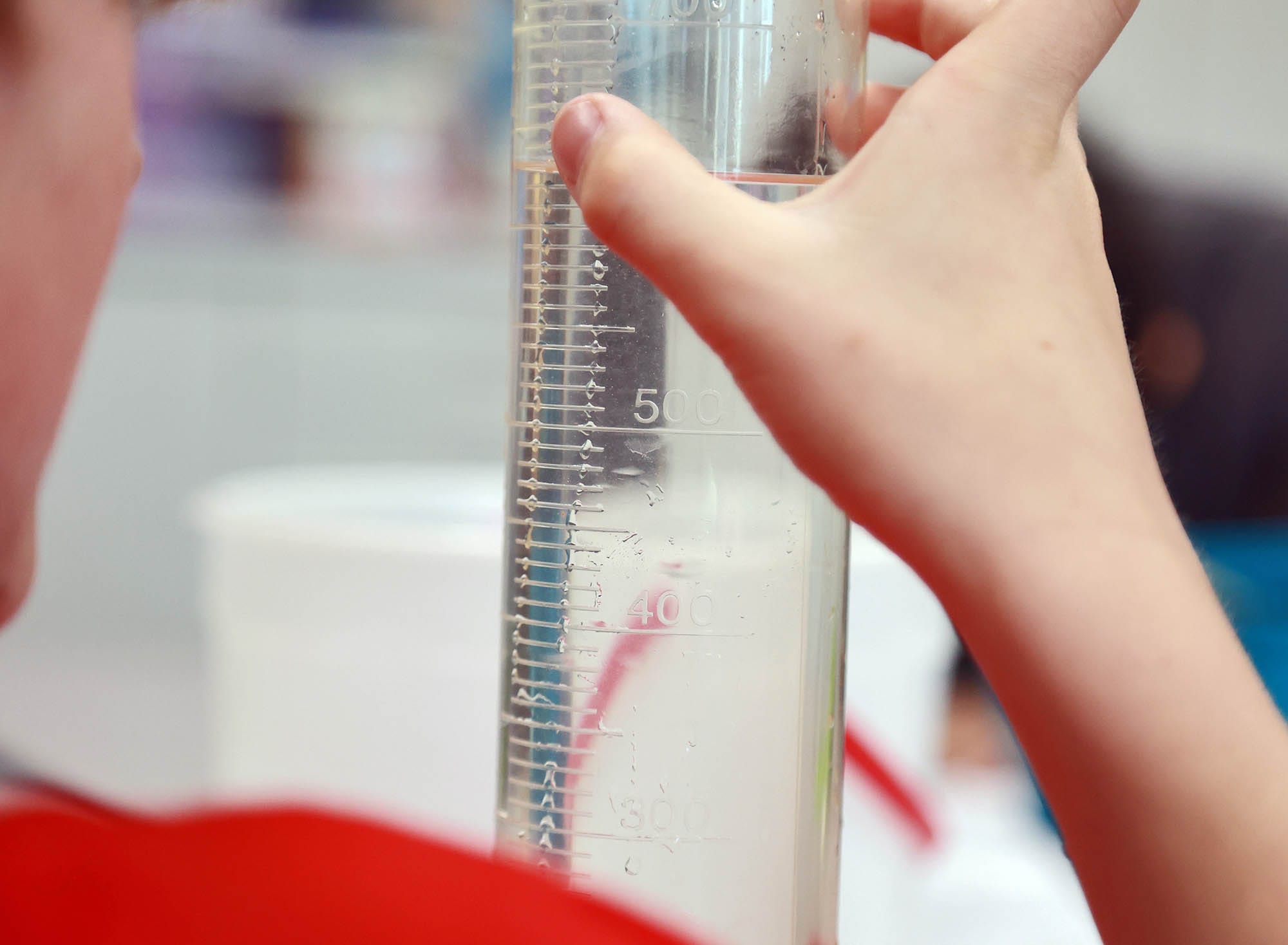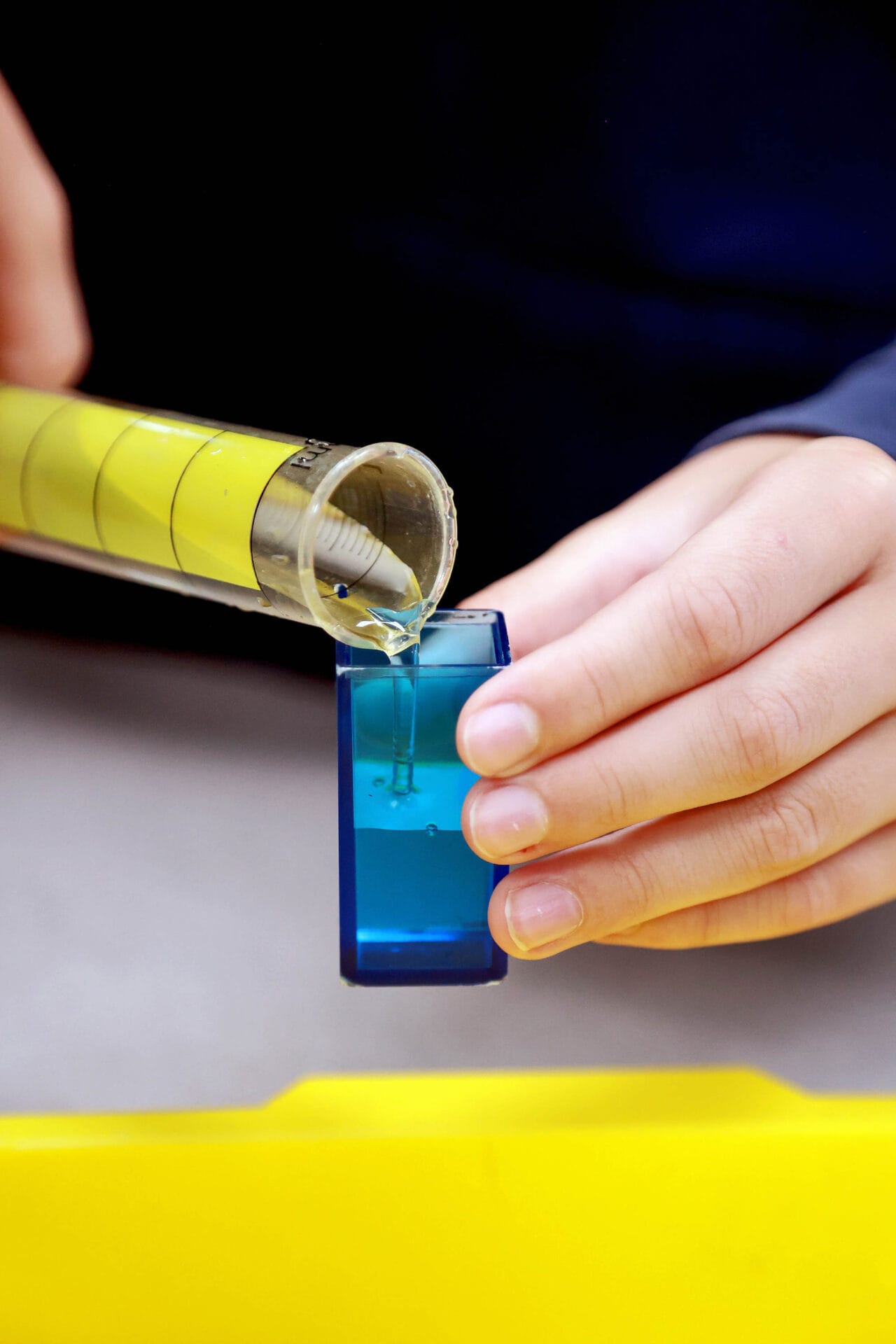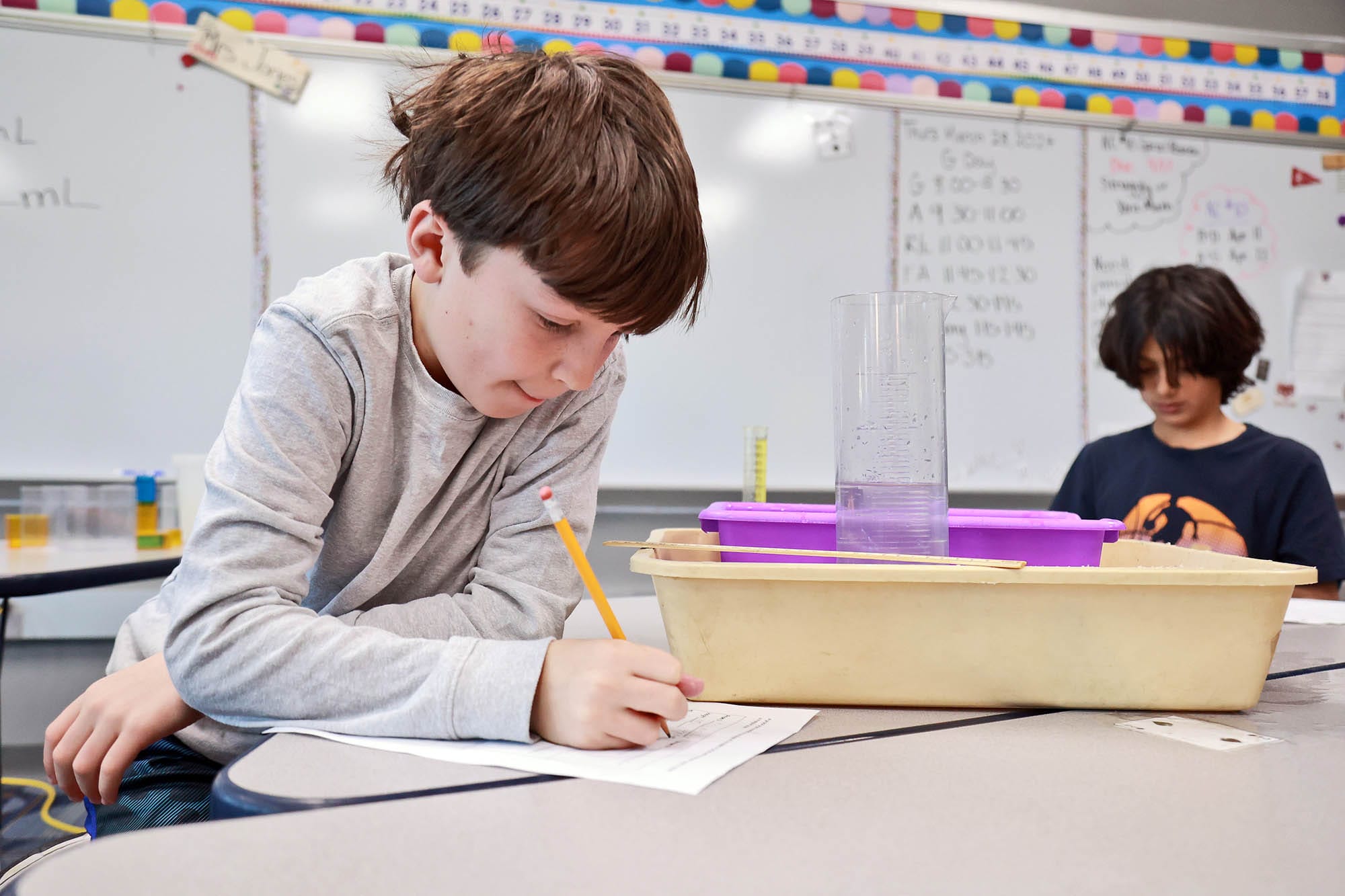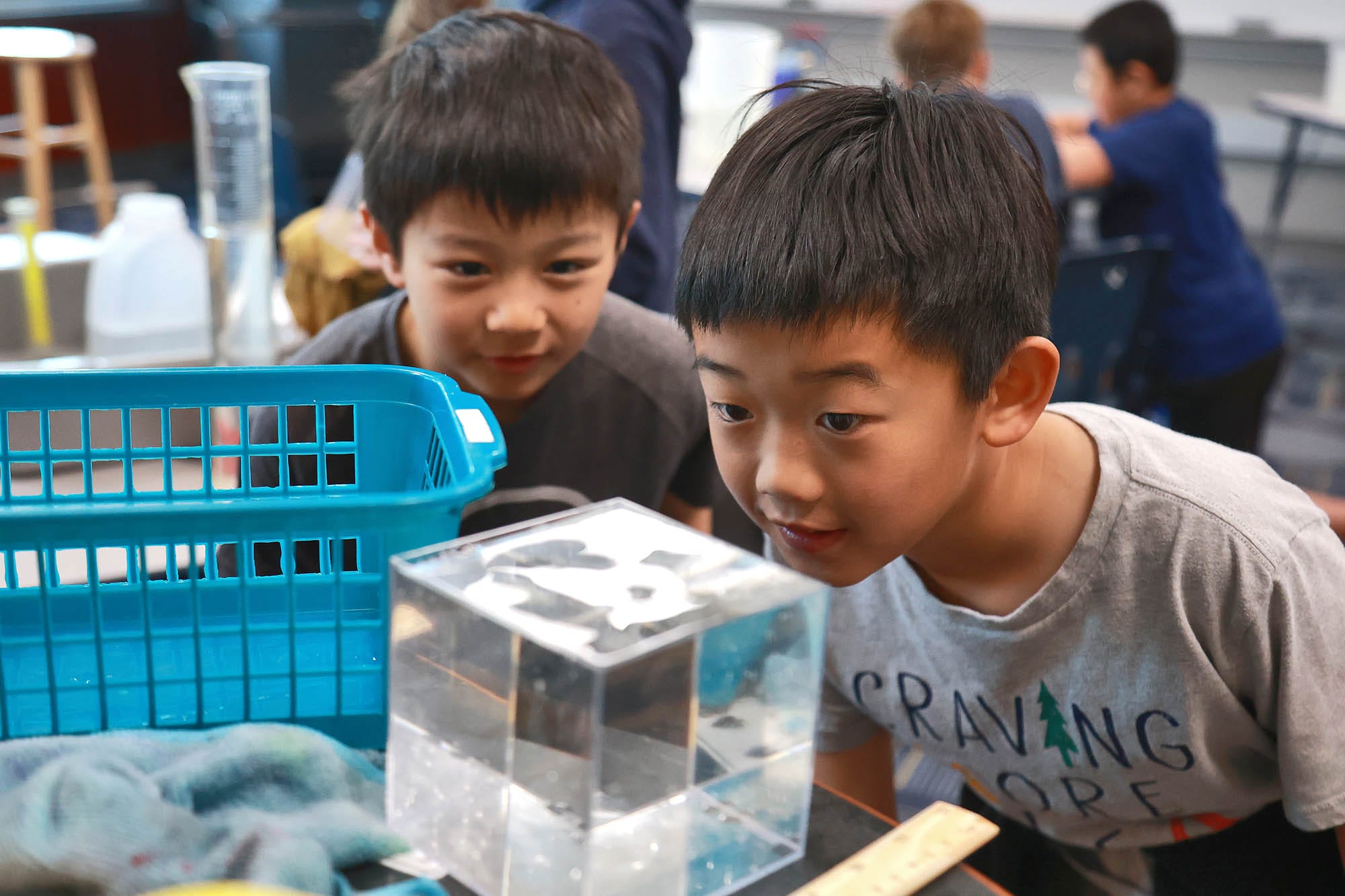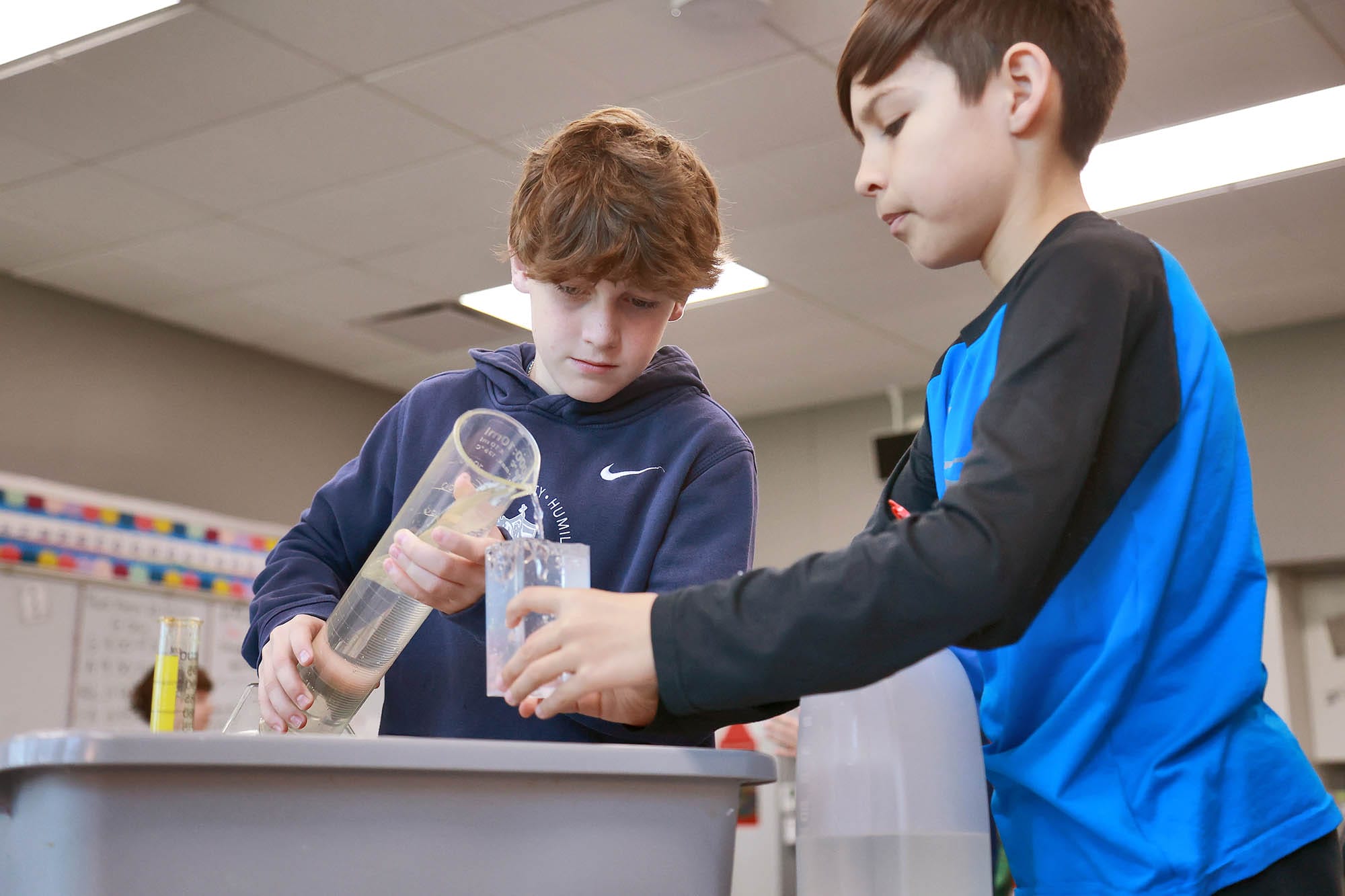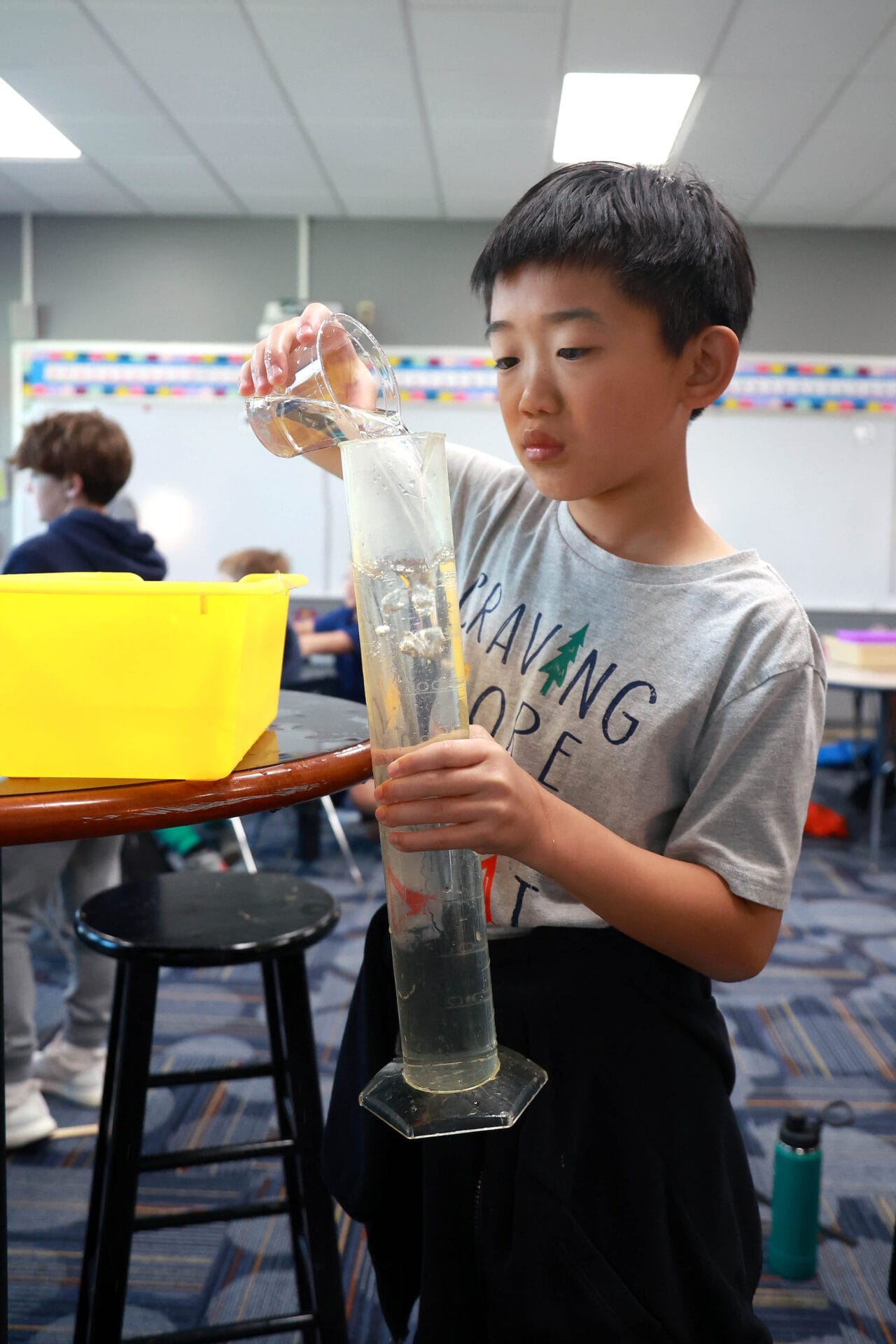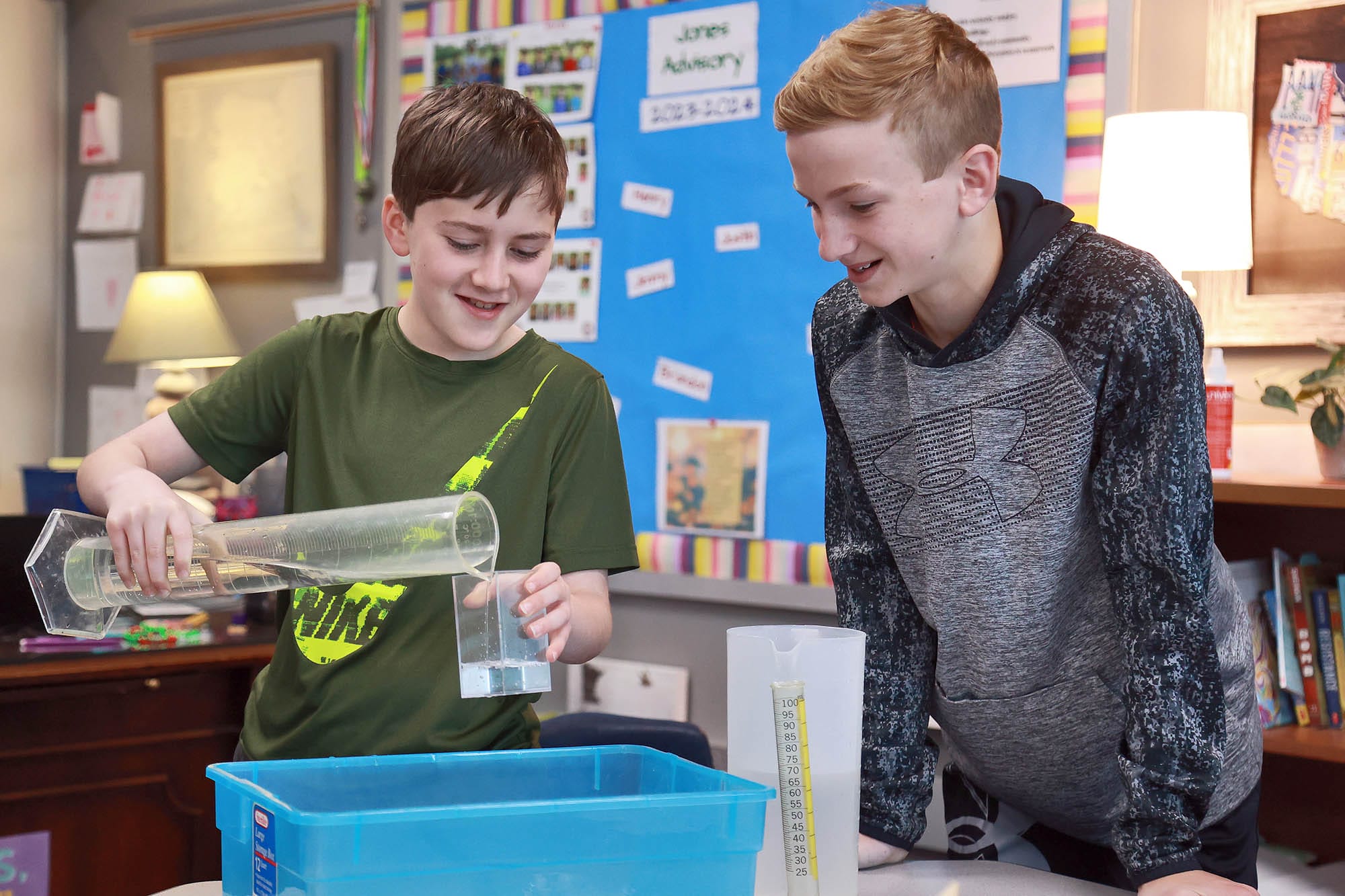How much water is in the campus swimming pool? Will it overflow if 10 people jump in? What about if 100 people jump in? Fifth-grade students working with Kristina Jones, Middle School Math Teacher, worked to calculate similar problems while learning about volume last week. Students used measurements to find the volume of rectangular prisms but also filled the prisms with water and found their liquid volume. “After testing several prisms, they noticed that the volume in cubic centimeters was very close to the volume in milliliters. We discussed what could contribute to that relationship, and they all agreed that milliliters and cubic centimeters were equivalent,” Jones said. Exploring the concept of volume with a hands-on exercise allows the students to discover those connections. Jones continued, “I could tell them the formulas, but since they discovered it themselves, I have seen a greater retention of the content and better application to more difficult math problems.”
The volume exercise was the introduction of pre-algebra by using a formula of variables, substituting values for letters and solving for an unknown. The deeper, more complete understanding of math concepts that comes from real-world experiments helps students as they move on to more complicated material. “We discussed the difference between linear measurement (cm), area (cm squared), and volume (cm cubed). We have also learned about metric conversions, which helped them convert centimeters cubed into liters. This is a foundation for algebra and more geometry,” said Jones.
While the educational benefits of this type of approach are clear, students also seem to enjoy this approach to learning. “Students thought it was so fun to play with water in math class,” said Jones. “They really loved it!”
